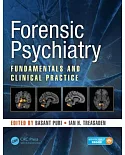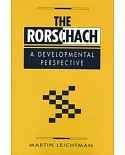'An increasing number of psychologists who were trained in clinical psychology, health psychology, or another specialty are gravitating toward rehabilitation psychology, but many of them have
little or no experience with rehabilitation populations. With the explosion of interest in traumatic brain injury (TBI), many neuropsychologists are taking jobs in rehabilitation settings that
treat people with TBI but also care for persons with the array of other disabling conditions such as spinal cord injury, stroke, MS, and amputation. In Specialty Competencies in Rehabilitation
Psychology, Drs. Cox, Cox, and Caplan provide a guide to the knowledge and skills required by competent rehabilitation psychologists, with an emphasis on the evidence base of the specialty. The
volume will be valuable to those preparing for the Board Certification Examination in Rehabilitation Psychology and will also be valuable to newcomers to the field and to clinicians working on
an outpatient basis with individuals with a wide variety of chronic conditions. Series in Specialty Competencies in Professional Psychology Series Editors Arthur M. Nezu and Christine Maguth
Nezu As the field of psychology continues to grow and new specialty areas emerge and achieve recognition, it has become increasingly important to define the standards of professional specialty
practice. Developed and conceived in response to this need for practical guidelines, this series presents methods, strategies, and techniques for conducting day-to-day practice in any given
psychology specialty. The topical volumes address best practices across the functional and foundational competencies that characterize the various psychology specialties, including clinical
psychology, cognitive and behavioral psychology, school psychology, geropsychology, forensic psychology, clinical neuropsychology, couples and family psychology, and more. Functional
competencies include common practice activities like assessment and intervention, while foundational competencies represent core knowledge areas such as ethical and legal issues, cultural
diversity, and professional identification. In addition to describing these competencies, each volume provides a definition, description, and development timeline of a particular
specialty,including its essential and characteristic pattern of activities, as well as its distinctive and unique features. Written by recognized experts in their respective fields, volumes are
comprehensive, up-to-date, and accessible. These volumes offer invaluable guidance to not only practicing mental health professionals, but those training for specialty practice as well'--





















